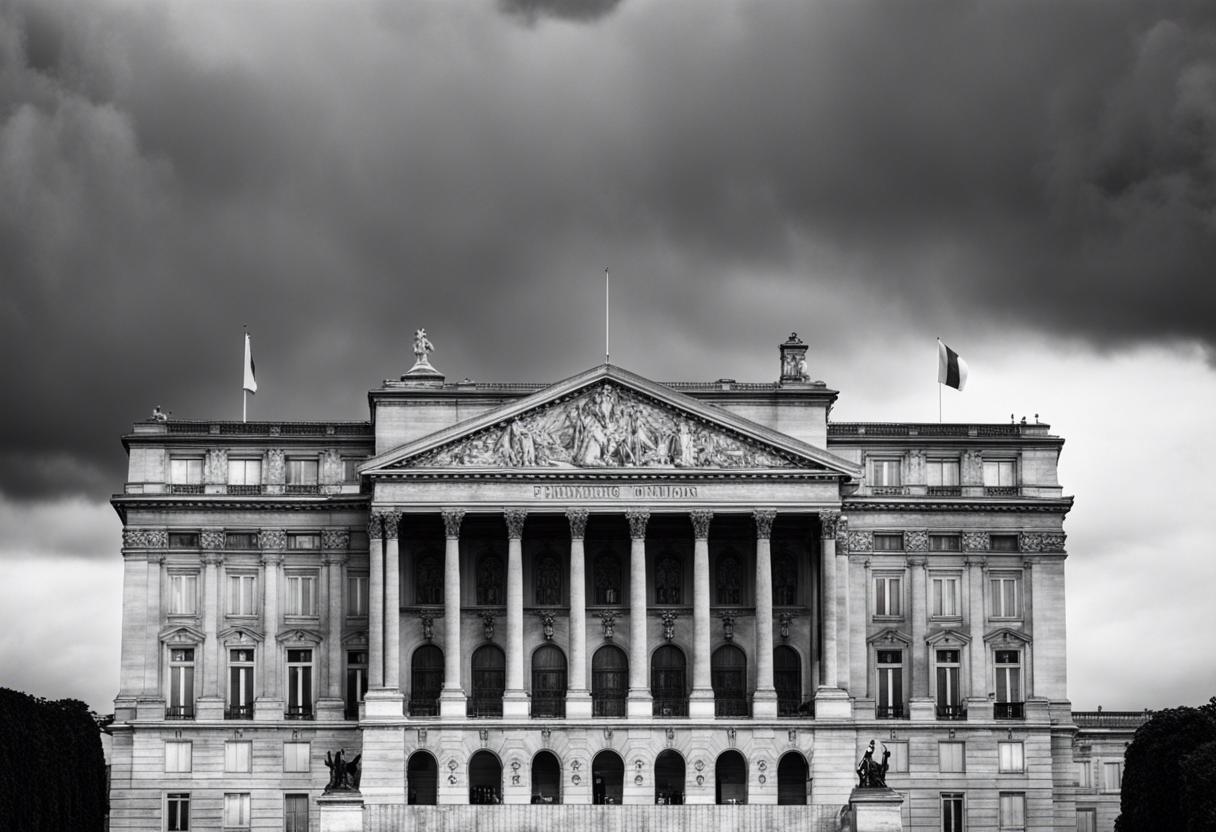Following the conclusion of the captivating summer Paris Olympics, which bolstered French national spirit and captivated global audiences, President Emmanuel Macron finds himself wrestling with a self-incited political crisis. The issue, previously swept aside until the Olympic Games concluded, is now front and center.
Discussions on state employment and impending budget cuts are slated to ensue, likely prompting public outrage. As Christine Frant, a 64-year-old fan at the Club France viewing zone, lamented, “The end of this wonderful dream brings us back to our mundane realities – the lack of a government, incessant parliamentary disputes, as opposed to the unity and joy experienced during the games.”
In a risky political maneuver, Macron triggered an early general election shortly prior to the commencement of the Games, leading to a gridlocked parliament. Picking a Prime Minister who can placate the interests of both Macron’s centrist coalition, a leftist alliance, and the extreme-right National Rally has been a herculean task. Following fruitless political wheelings and dealings post the July 7th poll, Macron invoked a political ceasefire for the Games’ duration, providing himself until mid-August to assign a Prime Minister and permit party bargaining.
Akin to a bad omen, the sabotage of railway and telecommunications at the Games’ onset seemed to forebode troubles, but the event went on without any subsequent security issues. Macron made a few visits to Paris from his presidential haven in the French Riviera, celebrating French judo titan Teddy Riner’s fourth gold win with a warm embrace.
While the French public avidly followed the Lebruns, a pair of table tennis prodigies, and backed swimming sensation Leon Marchand, politicians have been strategizing an escape from the crisis. It’s upto Macron now, and he didn’t seem to be in any rush even on Monday. In a conversation with the sports daily, L’Equipe, without revealing his choice of Prime Minister he stressed the importance of the Games asserting, “All those who were skeptical of the Games have been proven wrong.”
He remarked that the Games had reminded the French of their ability to achieve “remarkable feats as a collective”, planning to harness this sense of unity to mend political rifts.
Whether or not he will gain any political benefit remains unclear, but his toughest adversaries, far-right protagonist Marine Le Pen and leftist figure Jean-Luc Melenchon, have been obliged to soften their criticism while the Games are going on. Macron so far has disregarded the representative chosen by the left-wing coalition, the New Popular Front. Even though this coalition led the election, they have not yet taken steps to secure backing from other parties to gain a majority. Lucie Castets, despite efforts to heighten her political visibility, is still relatively unknown in the political scene.
“After watching the volleyball final at Club France, I found myself wondering who she even is?” said 41-year-old Zahera Dakkar. “I’ve not been paying attention to politics for the past fortnight. The Games offered a welcome reprieve from all that.”
The chances of Castets leading the left to secure a residency at Matignon, the official home of the prime minister, seem minimal. Macron claims that the election has shown that the National Assembly leans more towards the political centre or centre-right, a person close to Macron disclosed.
The president needs a figure who is able to communicate with both the right and left, spanning from the socially-oriented right to a left concerned about law and order, added this source. Xavier Bertrand, an earlier conservative minister under past president Jacques Chirac and vocal critic of Macron who nonetheless has worked positivity with Macron’s administration, could fit the bill, opined the source.
Possible options also include Bernard Cazeneuve, who served as prime minister under Socialist president François Hollande during the 2015 terrorist attacks in Paris, this source stated. There’s been no comment from either of the men’s offices in response to requests.
Regardless of who Macron appoints, they will face a difficult role, particularly with the imminent approval of the 2025 budget during a period when there’s significant pressure for France to lower its deficit. Eric Coquerel, the leftist chair of the finance committee in the parliament argued that if Macron tries to establish a right-leaning government, he will struggle to secure a budget.
Macron’s team hopes to utilise the Games, orchestrated jointly by a centrist president, a socialist mayor, and a conservative regional leader, as a demonstration of what can be achieved when differing factions unite. His competitors, however, are keen to ensure that Macron receives no recognition for this, stated senator Laure Darcos.
Despite a challenging domestic situation, Macron’s international reputation continues to be strengthened by the Games. Michael Payne, formerly of the International Olympic Committee in a marketing capacity, views Macron as a successful leader from an international perspective, but questions his strategic decision to prompt a sudden election ahead of the Olympics, instead of after. Conversations about politics were notably absent at Club France, a hub where families lined up for selfies with the Olympic torch and eagerly purchased red, plush mascots. A visitor named Frant, draped in a French flag, rejected any discussions centred around politics. – Reuters.

